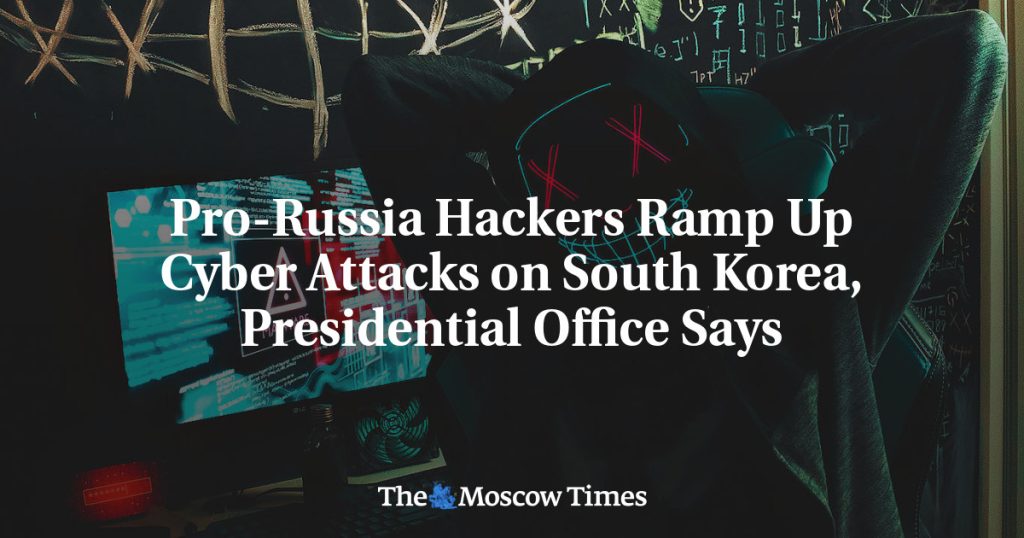Pro-Russia hacking groups have escalated attacks against South Korea, prompting authorities in Seoul to convene an emergency meeting to address the recent cyber assaults targeting government and private websites. These attacks have become more frequent following North Korea’s deployment of troops to Russia and its involvement in the war in Ukraine, according to South Korea’s presidential office. While no major damage has been reported, temporary outages have been experienced. The names of the hacking groups involved have not been disclosed, but the South Korean government is planning to enhance its capabilities to respond to such attacks.
The announcement from Seoul comes in the wake of Washington’s seizure of 41 internet domains allegedly used by Russian intelligence agents to infiltrate the Pentagon’s computers and email accounts. Furthermore, Germany’s domestic intelligence agency has warned of a cyber group linked to Russian military intelligence that has conducted attacks in Ukraine and NATO member states. Ukrainian President Volodymyr Zelensky has reported sending around 11,000 North Korean troops to Russia’s Kursk region, where they have already suffered losses. South Korea, a significant arms exporter, has traditionally refrained from providing weapons to countries in conflict, but President Yoon Suk Yeol recently indicated a shift in this policy due to Pyongyang’s military support of Moscow.
The escalating cyber attacks against South Korea come amid increased tensions in the region, with North Korean troops being deployed in Russia and the country’s involvement in the conflict in Ukraine. The South Korean government is taking steps to strengthen its response capabilities to these cyber assaults, although no major damage has been reported thus far. The connection between these hacking groups and Russian intelligence raises concerns about potential interference in sensitive government systems by foreign entities. The geopolitical implications of these attacks highlight the complex relationships between involved countries and the potential for cyber warfare to impact international relations.
The seizure of internet domains linked to Russian intelligence attempting to breach the Pentagon’s systems underscores the ongoing threat of cyber espionage and attacks on critical government infrastructure. Germany’s warning about a cyber group connected to Russian military intelligence further emphasizes the global reach and impact of these hacking operations. The involvement of North Korean troops in Russia and their reported losses add another layer of complexity to the situation, raising questions about the motivations and consequences of military support in the region. South Korea’s potential shift in policy regarding arms exports to countries in conflict reflects the evolving security landscape in response to changing geopolitical dynamics.
The targeting of South Korea by pro-Russia hacking groups highlights the vulnerability of government and private websites to cyber attacks, necessitating a proactive approach to cybersecurity measures. The South Korean government’s response to these attacks demonstrates a commitment to enhancing its capabilities and protecting critical infrastructure from potential threats. The interconnected nature of cyber warfare and international conflicts underscores the need for collaboration and coordination among countries to address cybersecurity challenges effectively. The ongoing developments in the region, including the deployment of North Korean troops and potential arms exports to Ukraine, reflect the complex and evolving nature of geopolitical dynamics in the era of cyber warfare.














